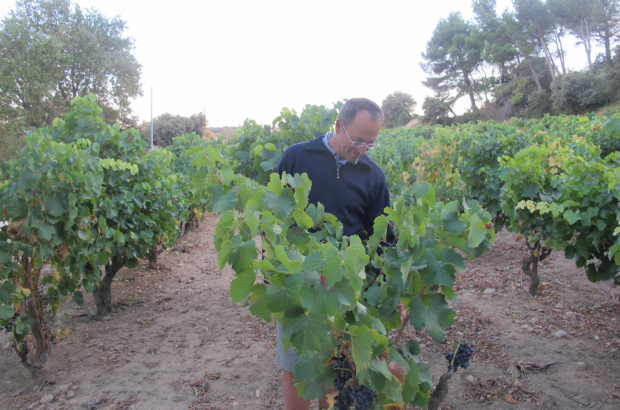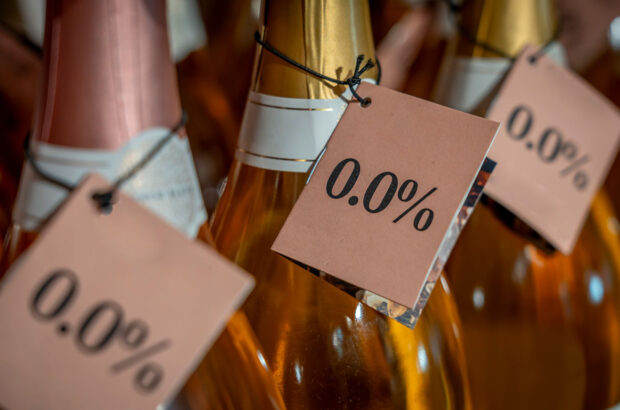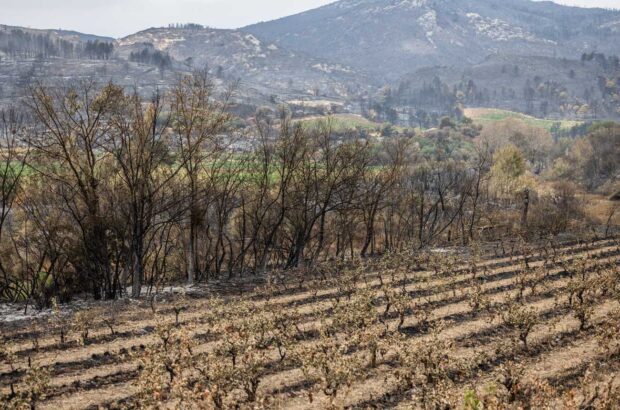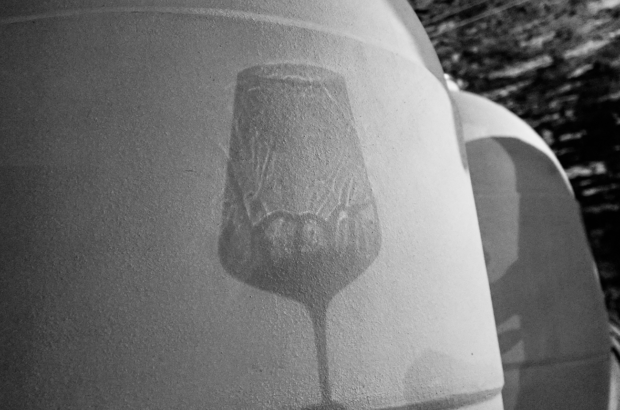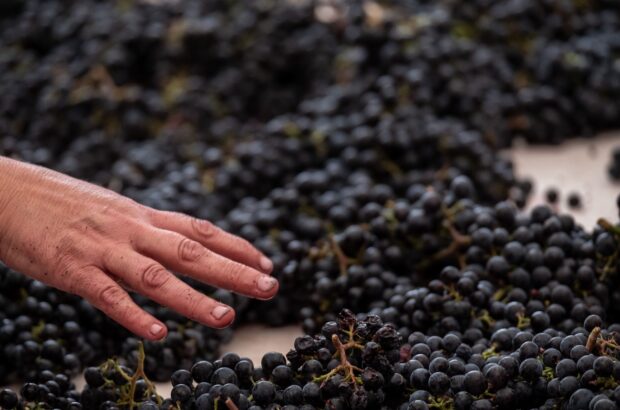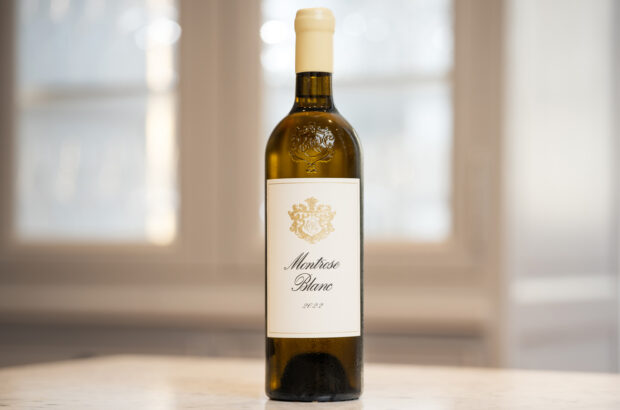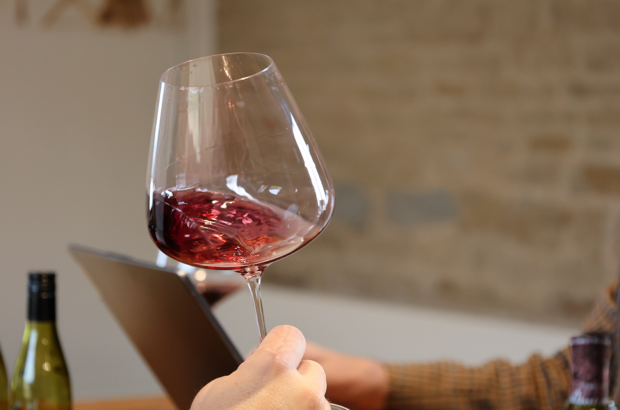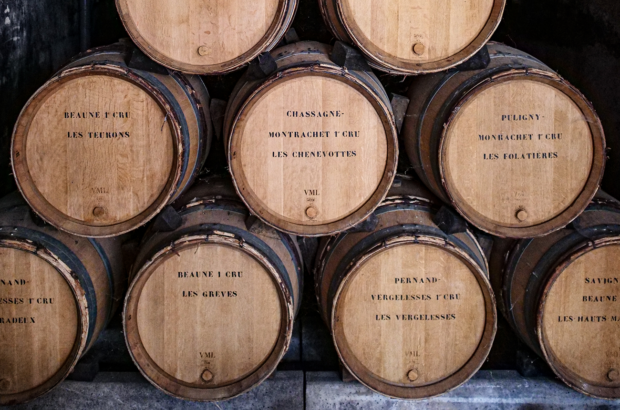In the heart of Pauillac, where gravelly soils yield some of the world’s most revered wines, Jean-Emmanuel Danjoy sits as the steady hand guiding the legendary first growth Château Mouton Rothschild and its fifth growth sister estates Château Clerc Milon and Château d’Armailhac.
Holding one of Bordeaux’s most coveted roles, he balances a dynastic family’s winemaking history and heritage with nature’s neverending challenges amid a constant demand for excellence. It’s no mean feat, yet his warm smile and unassuming charm make it seem effortless.
Trained in Napa Valley before taking the helm in Pauillac, he exudes a quiet confidence with enthusiastic energy and zero ego. There are no airs and graces, no grand gestures – just a thoughtful, sincere approach to a demanding role: leading three estates to produce wines that speak of place and pursue greatness, vintage after vintage.
Danjoy sees his job in two parts: running the estates and projecting their future. That starts with people. ‘I’m not a micromanager – that’s not my style,’ he says. ‘But I take pride in having a team that gets on well and works toward a common goal with pleasure.’ Overseeing 115 full time staff – and more than 450 during the harvest peak – he juggles logistics as much as vines. ‘It’s about coordinating, maintaining flexibility and playing with nature. When harvest ends and we feel we played our cards right, that’s a satisfying moment.’
Does he feel pressure? Of course. ‘There’s an expectation from ourselves and the outside that we’ll be able to perform well every year,’ he says. ‘But you don’t take this position if you can’t handle that.’

Château d’Armailhac’s Orangerie buildings, the most recently completed part of the estate in Pauillac. Credit: Gabriel Guibert
Path to greatness
So, how did he get here? Born in Gabon to French parents, Danjoy spent his childhood ‘all over Africa’ (including secondary school in Casablanca, Morocco), where a connection to farming came naturally. Wine, though, struck a deeper chord during agribusiness studies: ‘It wasn’t just a product – it had complexity, a sense of time and place, and a cultural element.’ A university tasting club and a talk by French winemaker Jean-Claude Berrouet, best known for his work at Petrus and Dominus Estate, sealed the deal, prompting a shift into winemaking.
Danjoy made up for a lack of family ties to wine or much hands-on experience with simple determination – interning in Morocco and Bordeaux before a research project on Cabernet Sauvignon’s phenolic ripeness earned him a six-month role at Opus One, the Napa Valley joint project between Robert Mondavi and Baron Philippe de Rothschild.
Upon graduating, he returned the next year to run the 2000 vintage after the previous technical director left. ‘I was 23; it was an unbelievable experience.’
Renowned American oenologist Michael Silacci was eventually hired as chief winemaker, and he called Danjoy back to Opus for a third time to help run the vineyards; Danjoy joined full-time in 2001 as a viticulturist and assistant winemaker.
Today, he praises Silacci’s mentorship: ‘He opened me to the world of wine and gave me such a high level of responsibility. Michael was always saying, “The best thing you can put in the vineyard is your own two feet”, and that stuck with me.’
Danjoy spent these formative years at Opus trying to understand the terroir potential, looking at vines and how they translate into the taste of berries, something that still resonates. Opus was founded on the same concept as a Bordeaux first growth, but pretty much everything else was different – the environment, the culture, the regulations. Tradition is good, but so is innovation and Danjoy learned the benefits of adaptability.
‘Winemaking is all about observation,’ he says. ‘Techniques are like seat belts in cars – they’re just ways to make sure things don’t go wrong.’ Grape ripeness is also key: ‘Just because you can ripen them further doesn’t mean you should’ – precisely the thinking that led to the crafting of such an exquisite Mouton Rothschild 2022 despite record-breaking heat and drought.

Château Mouton Rothschild. Credit: Gabriel Guibert
Upward steps
After 10 years at Opus, a new challenge was on the horizon, and again, be it through timing, luck or pure destiny, Danjoy found it – or rather it found him. In 2009, in what would be his first job in France, he was appointed director of Château Clerc Milon. His first task was to build a dedicated team at the estate (previously shared with d’Armailhac). ‘There was a lot of work to be done. It was a complex vineyard, but I had a mission.’
Under his stewardship, the wines gained elegance and precision – a precursor to the finesse he would later bring to Mouton Rothschild, where he became managing director and winemaker in 2020, taking over from another of his mentors, Philippe Dhalluin. His new role involved overseeing all three Rothschild estates in Bordeaux.
How did he cope with this new level of responsibility? ‘There’s nothing magic,’ he says humbly, ‘just lots of attention, dedication and hard work. Going from Clerc Milon to running the three estates is a big jump. Was it overwhelming? No, but it’s been a lot to absorb.’
He took over just as Covid hit – which ironically gave him time to focus. Today, each estate has its own team, with shared knowledge and a common goal: synergy. ‘The wines now speak more clearly of their terroir,’ Danjoy says. D’Armailhac is ‘very accessible, with Pauillac classicism in the best sense’; Clerc Milon is ‘precise and energetic’; and Mouton Rothschild embodies ‘grandeur and depth’.
Under his leadership, R&D and sustainability are non-negotiable. Solar panels, rainwater collection, a sheep-grazing project and hedgerow planting all form part of the estates’ environmental commitments. ‘We need to be irreproachable,’ he says.
He remains pragmatic about climate change: ‘We’re not panicking, but it’s happening.’ Exchanges with Opus and Almaviva in Chile (the family partnership with Concha y Toro) offer insights that help guide practices such as cover crop cultivation, canopy management and row orientation. ‘We need to project and anticipate what will be coming in the future, but when you have back-to-back Bordeaux vintages like 2021 and 2022, you have to be careful not to overreact. It’s about fine tuning, not reinventing the model.’
At home, he’s a family man. He teaches his two sons skiing and trout fishing, and dinner time is ‘sacred’. An outdoors enthusiast, he has his own vegetable garden, hikes and rides motorcycles. This year, he’s tackling the Médoc Marathon and a 100km bike ride, albeit somewhat reluctantly. ‘Somehow I got talked into it,’ he says with a smile ‘but it’s good exercise.’
Perhaps unsurprisingly, he and his wife share a love of wine – she has apparently become ‘a very good blind taster’. His tastes are wide ranging: old-vine Carignan, iconic Napa Cabernets. ‘I’m passionate about exploring and want to be exposed to different tastes,’ he says.
Does he have a favourite Mouton Rothschild vintage? ‘There are so many,’ but the 1959 left an indelible mark. Tasting it when he was just 23 years old he ‘expected something good’ but the wine ‘was out of this world, totally sublime’.
Incremental change
Bordeaux’s current struggles – waning demand and economic pressures – aren’t lost on Danjoy. ‘No one is immune,’ he acknowledges, even first growths, but his optimism is unwavering. ‘We make wines that tell stories and make moments special. People are still sensitive to that, even more so nowadays.’
He sees no need to reinvent Mouton Rothschild’s style for younger drinkers either. ‘The wines today have an incredibly wide drinking window,’ he says. ‘You get to understand the estate by drinking fully mature vintages, but young ones are delicious, too.’
I ask if his wines carry a signature. He defers. ‘I don’t think in this way,’ he says, but there’s always evolution and the wines are more ‘contemporary’ now. ‘There’s no intent, but we’re in an environment where we make things that evolve with our preferences.’
The best part of his job? ‘Having access to one of the world’s best terroirs. For [Michael] Schumacher, it would be getting to drive the best cars. When you’re given that opportunity, it’s unique and you should be grateful for it.

Danjoy in 2011 among the vines at Château Clerc Milon, where he was director at the time. Credit: Mathieu Anglada




